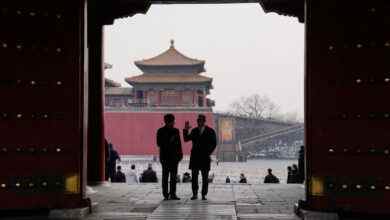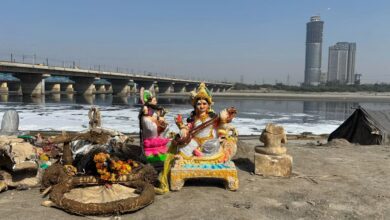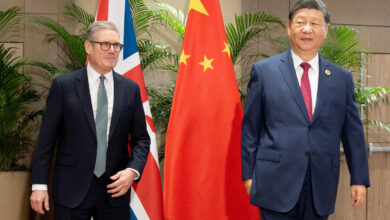
One year from now, we will all exhale with exhaustion, looking back at a 2016 that kept the entire world on edge. Maybe 2017 will bring more calm, we will muse, knowing that a brand new US president will usher in a change in policies for addressing intensifying global conflicts that America cannot afford to ignore.
Predicting the future may be a fool's errand, but there is little doubt that 2016 is shaping up as a pivotal year. Here are what look poised to be the biggest stories of next year:
The US Presidential election:
This isn't just a domestic US story — the election of the new American president will keep the world riveted for good reason. The term "leader of the free world," has grown stale and dated, but no single human being plays a greater role in history's unfolding drama. This time, the election will be historic no matter what the outcome. As the clock ticks towards the summer conventions, outrageous pronouncements from the campaign trail will send sparks flying around the world.
The odds makers say Hillary Clinton will win. Regardless, Republicans will deny Donald Trump the nomination, although that will not quiet him — he will not relinquish the limelight. So, brace yourself for a brash, startling parade of epithets and scapegoating, followed by a GOP defeat, which will leave the party licking its wounds and searching for culprits.
Obama's final year:
All eyes will be focused on the campaign trail, but power will still reside in the White House, where Barack Obama will seek to make the most of what's left of his presidency. He will try to get results on domestic issues such as gun control and penal reform, while aiming to highlight foreign policy achievements with a historic visit to Cuba and a series of "victory lap" foreign trips.
But it's much too soon to declare victory. The Middle East will continue to demand his attention. Obama will try — and fail — to avoid leaving his successor with a raging war in Syria. He will face withering criticism — including from Hillary Clinton, once she is freed from the constraints of the primaries — about his ineffective Syria policy, even as he seeks to come up with a plan to tackle the chaos in the Middle East. Adding to the disappointment, the Obama presidency will end with ominous signs for Afghanistan — the war that candidate Obama was determined to win once in office.
The global war against ISIS and the Syria black hole:
The Islamic State of Iraq and Syria will make progress in its war against the world, placing its foes in a most uncomfortable position: Either give ISIS what it wants — a global conflict — or take a backseat as the terrorist group continues to perpetrate shocking mass casualty attacks.
ISIS will tell radicalized young Muslims to stay home and attack where they live. The conflicts against ISIS in Syria and Iraq will intensify, and even if it loses ground in those two countries, that will not end its activities elsewhere, as it puts ever more pressure on governments in the West and the Middle East to go all in militarily against the group, which is exactly what ISIS wants as it seeks an apocalyptic showdown.
In the meantime, Syria's civil war, which has already claimed the lives of hundreds of thousands of Syrian civilians, will create more unrest in a number of countries, including Turkey, a US ally that some believe is edging nearer its own civil war. Indeed, the reality is that the conflict in Syria will encourage deepening international intervention, becoming a proxy for countless other rivalries as the conflict increasingly takes on the shape of the first World War of this young century.
Putin's next move:
Russian President Vladimir Putin will make the most of Obama's final year in office, expecting a stronger pushback from the next US president. He will forge a closer alliance with Iran, but will also bolster his efforts to undercut America's global position. He will try to make Russia a more powerful player in the Middle East, at America's expense, moving to court Saudi Arabia, Egypt, Lebanon, and others. In addition, the Russian rift with NATO member Turkey will deepen.
Rise of the right in Europe:
The combination of terrorist attacks by Islamist radicals and the continuing arrival of large numbers of refugees will provide the fuel that powers the rise of rightist parties in Europe. This year will mark the definitive end of the centrist consensus that has broadly dominated Europe for decades. Centrist parties will put up a fight and will overpower the right in some nations, but in others, local and national governments will be dominated by parties whose rhetoric, even if not all of their policies, have uncomfortable echoes of some of what we heard in the 1930s.
Latin America and the end of populism:
While in Europe, populists on the left and right will grab the headlines, in Latin America the era of populism will come to an end. The democratically-elected presidents who managed to manipulate the democratic process and make way for lifetime presidencies will face the stiffest opposition they have ever seen.
The combination of low export prices for natural resources and a fierce anti-corruption drive will fuel the fury of the people against entrenched parties. Expect fireworks, especially in Venezuela, but also in Brazil and elsewhere in the region.
China Rises, under the radar:
The continuing rise of China will be one of the most important trends of the year, but will remain largely under the radar, obscured by Middle Eastern turmoil and a deliberate effort by Beijing to keep a low profile. China will look to some like it has hit the brakes, but its economy, if a little less vibrant than in recent years, will expand faster than any major economy. And the country will make inroads — strategic and economic — far beyond its shores.
China's neighbors, meanwhile, will seek Western help dealing with Beijing's aggressive policies in the South China Sea even as other worries surface. Western officials will find themselves confronted by the significance of China's new terrorism law, which allows the military to pursue terrorist threats overseas.
India rises, on the radar:
Indian Prime Minister Narendra Modi will make waves in 2016. Where China has been quietly aggressive, Modi will be aggressively conciliatory.
His surprise visit last week to Pakistan will prove to have been the first step in a policy of lowering tensions with its long-time foe and shifting India's attention to wider regional issues, with an eye on turning India into a force no longer viewed simply through the prism of tense relationship with Pakistan. Prepare for India to take its place among the world's big players.




